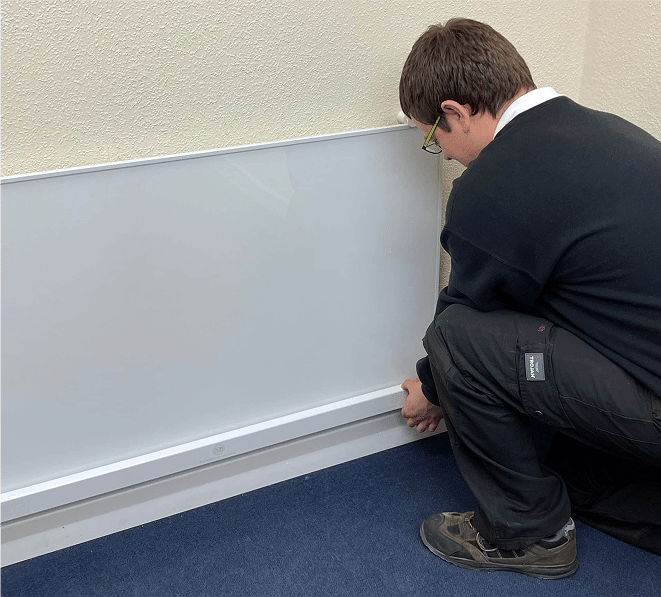As an installer, you need to be confident you’re specifying the right solution every time – whether it’s a new-build or retrofit project.
The race to decarbonise home heating is creating new opportunities for contractors and installers as gas heating is gradually replaced by low-carbon systems. However, it’s important to find technologies that are suitable for smaller and multi-occupancy buildings.
This is where Ambion comes in. Our low-carbon infrared heat panels are ideal for flats and small homes. The Energy House 2.0 research project has proven that Ambion infrared heat panels are a highly effective system with leading levels of comfort and control. They provide a practical, affordable alternative to heat pumps.

Ambion low-carbon infrared heating panels are quick and easy to install, without compromising on quality. They provide a sustainable, affordable and efficient heating solution that your customers will love. Plus, they are made to last and come with a 10 warranty for extra peace of mind and access to technical support from our expert team.
Why recommend Ambion?
How do low carbon heat panels work?
Our low carbon heat panels use a unique control system to maintain a comfortable temperature 24/7 using infrared, enabling residents to stay warm while using less energy.
The unique control system uses constant dynamic pulsing to dramatically reduce energy usage and maintain a room’s temperature. Infrared is the perfect partner for dynamic pulsing; building materials absorb and store the infrared, with the heat then released intermittently between pulses, so rooms stay at the chosen temperatures.
As an Ambion partner, you’ll benefit from a range of incentives, helping you to ensure your clients get the right solution, while playing your part in creating a greener future too.

